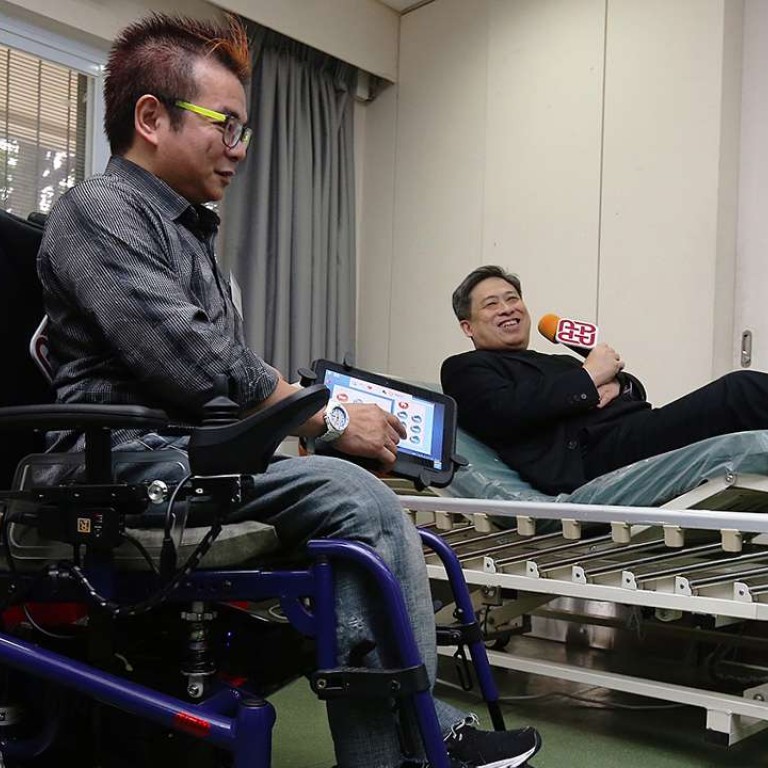
Hong Kong team rolls out HK$25,000 smart wheelchairs
Despite boosting users’ independence and options, developers warn production costs need to be lowered for model to survive the market
Wheelchair users can now use a tablet to control their home devices and monitor their health, safety and hygiene, as developers claim more cooperation from the business world is needed to make the system affordable.
Jointly rolled out by experts from the Polytechnic University biomedical engineering and textiles and clothing departments, the intelligence system enabled wheelchair users to power devices like TVs, light switches and electric beds by connecting them to a tablet computer installed in the wheelchair.
The innovation marked the first time local researchers across different disciplines used their cutting-edge technologies to craft what they called an “iWheelchair” system for wheelchair-using individuals.
READ MORE: Schedule trumps wheelchair convenience, says Hong Kong’s MTR Corp
PolyU’s project coordinator, Dr Eric Tam Wing-cheung, said favourable feedback from trial users led his team to believe the system would enhance their lives and “relieve their caregivers of considerable burden”.
However, Tam expressed concern over costs – around HK$25,000 per chair – and wondered whether there would be “any factories interested in putting it into mass production”.
Developers revealed there had been more than a dozen users in the city benefiting from the system and that efforts were under way to make it more affordable for most wheelchair users.
Should one fall from a wheelchair equipped with the system, an alert would be activated on the caregiver’s phone, the developers said. In addition, a user could track his or her heart rate and body temperature on a touch screen as sensors would record and send real-time data to the tablet.
READ MORE: One for all, and all for one: lawsuit of Chinese wheelchair users banned from flight ‘is for rights of all mainland’s 85 million disabled’
Long-time wheelchair user Philip Wong said he had become more independent since using his iWheelchair. “I particularly like the function that enables me to turn lights on and off and change TV channels,” he said.
Wong, who was among the city’s first to try the specially-outfitted wheelchair, said he had been searching for a smart wheelchair product overseas for some time and that he felt fortunate to have one at home, especially when he was alone.
That said, Tam and his colleagues described the smart wheelchair business as not profitable in many parts of the world. For this reason, they sought to eventually put their system on the market “on a larger scale”.

